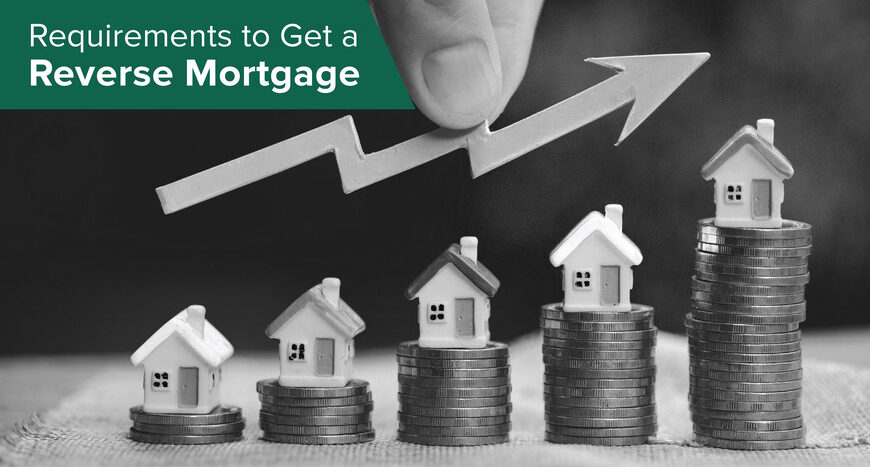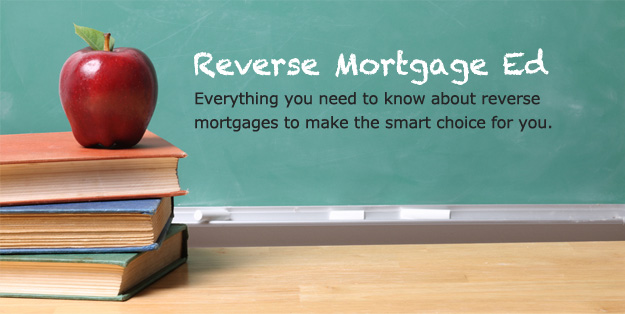The Process Involved When You Decide to Purchase Reverse Mortgage
The Process Involved When You Decide to Purchase Reverse Mortgage
Blog Article
Empower Your Retirement: The Smart Means to Purchase a Reverse Home Mortgage
As retired life methods, many people seek efficient strategies to boost their financial freedom and well-being. Amongst these techniques, a reverse home mortgage emerges as a sensible choice for homeowners aged 62 and older, enabling them to take advantage of their home equity without the necessity of month-to-month payments. While this economic tool supplies several advantages, consisting of enhanced capital and the potential to cover important expenditures, it is important to understand the ins and outs of the application process and essential considerations involved. The following steps might disclose how you can make an educated choice that might substantially impact your retired life years.
Comprehending Reverse Home Mortgages
Understanding reverse home loans can be important for property owners seeking economic versatility in retired life. A reverse home loan is an economic product that allows qualified house owners, commonly aged 62 and older, to transform a part of their home equity right into money. Unlike conventional home loans, where customers make regular monthly repayments to a loan provider, reverse home loans allow home owners to get settlements or a swelling sum while retaining ownership of their building.
The quantity offered through a reverse home mortgage depends upon a number of elements, including the home owner's age, the home's worth, and current rate of interest. Significantly, the funding does not have to be paid off up until the property owner markets the home, leaves, or passes away.
It is essential for potential borrowers to recognize the implications of this economic product, consisting of the influence on estate inheritance, tax factors to consider, and ongoing responsibilities associated with home maintenance, tax obligations, and insurance. In addition, counseling sessions with certified professionals are usually needed to guarantee that consumers completely comprehend the terms of the funding. Overall, a detailed understanding of reverse mortgages can encourage property owners to make educated decisions about their financial future in retired life.
Advantages of a Reverse Home Mortgage
A reverse home loan uses numerous engaging advantages for eligible homeowners, especially those in retired life. This financial device permits seniors to convert a part of their home equity into money, giving vital funds without the requirement for regular monthly home loan payments. The cash acquired can be utilized for numerous objectives, such as covering clinical expenses, making home improvements, or supplementing retirement earnings, therefore enhancing total economic adaptability.
One substantial benefit of a reverse home mortgage is that it does not need settlement till the homeowner moves out, sells the home, or passes away - purchase reverse mortgage. This function allows senior citizens to keep their way of life and satisfy unexpected costs without the burden of monthly payments. Additionally, the funds obtained are usually tax-free, enabling property owners to utilize their cash without anxiety of tax obligation effects
Moreover, a reverse home loan can offer assurance, recognizing that it can function as a monetary security net throughout challenging times. Homeowners additionally maintain ownership of their homes, guaranteeing they can continue staying in an acquainted atmosphere. Ultimately, a reverse mortgage can be a calculated monetary resource, empowering retirees to handle their financial resources successfully while enjoying their golden years.
The Application Process
Browsing the application process for a reverse mortgage is an essential step for home owners considering this economic choice. The initial stage involves examining eligibility, which generally calls for the property owner to be at the very least 62 years of ages, very own the property outright or have a reduced mortgage balance, and description inhabit the home as their key residence.
As soon as qualification is confirmed, house owners should undergo a therapy session with a HUD-approved therapist. This session guarantees that they totally understand the ramifications of a reverse mortgage, consisting of the responsibilities included. purchase reverse mortgage. After finishing therapy, applicants can continue to collect necessary paperwork, consisting of evidence of income, possessions, and the home's worth
The following step requires sending an application to a lender, who will analyze the financial and residential property qualifications. An appraisal of the home will certainly additionally be performed to identify its market worth. If approved, the lending institution will provide loan terms, which ought to be examined meticulously.
Upon approval, the closing procedure adheres to, where last records are signed, and funds are paid out. Understanding each phase of this application process can substantially boost the home owner's self-confidence and decision-making regarding reverse mortgages.

Trick Considerations Prior To Investing In
Purchasing a reverse home mortgage is a substantial financial decision that requires mindful factor to consider of a number of essential variables. Initially, navigate to this website comprehending your eligibility is crucial. Property owners have to be at the very least 62 years of ages, and the home has to be their key home. Examining your financial demands and goals is equally important; establish whether a reverse home loan aligns with your lasting plans.

A reverse home mortgage can influence your qualification for particular federal government advantages, such as Medicaid. By completely examining these factors to consider, you can make a much more educated decision about whether a reverse mortgage is the right economic approach for your retired life.
Maximizing Your Funds
Once you have actually safeguarded a reverse home loan, successfully taking care of the funds ends up being a concern. The adaptability of a reverse mortgage enables house owners to utilize the funds in different methods, but strategic preparation is important to maximize their advantages.
One crucial method is to create a spending plan that outlines your monetary objectives and monthly expenditures. By identifying essential expenses such as medical care, real estate tax, and home upkeep, you can assign funds as necessary to guarantee lasting sustainability. Additionally, think about making use of a part of the funds for financial investments that can generate earnings or value over time, such as shared funds or dividend-paying supplies.
Another essential facet is to maintain a reserve. Alloting a book from your reverse home mortgage can help cover unforeseen expenses, giving peace of mind and economic stability. Moreover, seek advice from with an economic consultant to discover possible tax obligation implications and just how to incorporate reverse home loan funds right into your general retirement technique.
Eventually, prudent administration of reverse home loan funds can improve your monetary protection, permitting you to appreciate your retired life years without the tension of monetary uncertainty. Careful planning and informed decision-making will certainly ensure that your funds function effectively for you.
Conclusion
In verdict, a reverse home mortgage presents a sensible monetary approach for senior citizens looking for to improve their retired life experience. By transforming home equity right into obtainable funds, people can attend to important expenses and safe and secure additional financial sources without incurring month-to-month payments.
Comprehending reverse home mortgages can be important for homeowners seeking monetary adaptability in retirement. A reverse home loan is an economic product that enables qualified homeowners, usually aged 62 and older, to transform a portion of their home equity into cash money. Unlike traditional home loans, where consumers make regular monthly settlements to a lender, reverse home loans make it possible for homeowners to get payments or useful reference a lump amount while preserving ownership of their home.
In general, a detailed understanding of reverse mortgages can encourage home owners to make enlightened choices concerning their financial future in retired life.
Seek advice from with an economic expert to discover feasible tax implications and how to integrate reverse mortgage funds right into your overall retired life approach.
Report this page